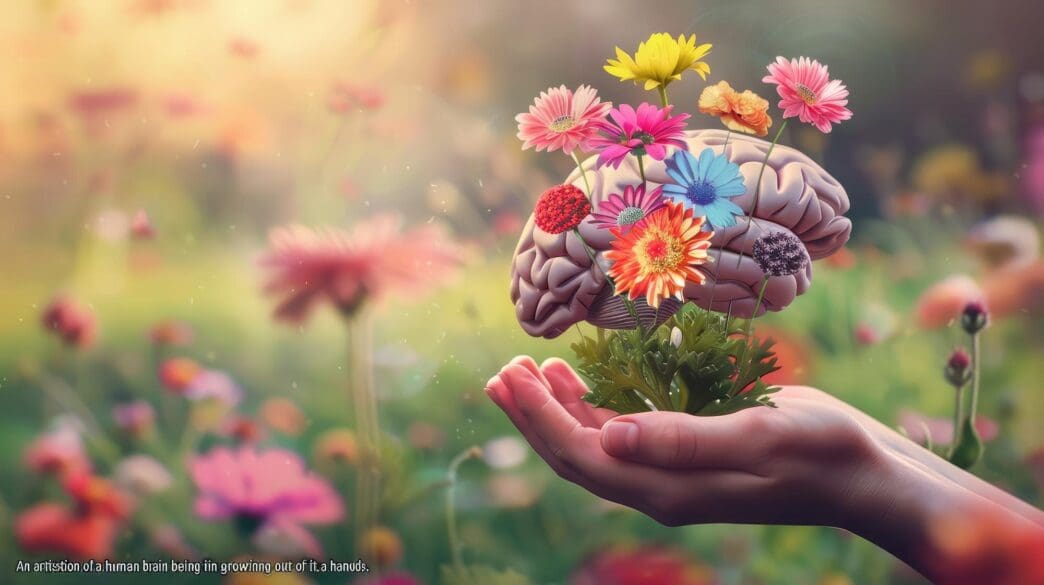A Quick Takeaway
The Story Behind the Trend
How to Make It Work for You
The Community View
Gratitude practices, simple yet profoundly effective habits like journaling or expressing thanks, are powerful tools anyone can use daily to significantly improve their mental and emotional well-being by actively reshaping brain chemistry. These intentional acts of appreciation, when consistently applied, can lead to a cascade of positive neurological changes, enhancing mood, reducing stress, and fostering resilience, ultimately transforming how the brain functions and perceives the world. By consciously focusing on what is good, individuals can unlock a virtuous cycle that reinforces positive neural pathways, proving that a grateful mind is not just a happy mind, but a healthier, more adaptable one.
The Neuroscience Behind Gratitude
The act of feeling and expressing gratitude isn’t merely a pleasant emotion; it triggers a tangible cascade of neurochemical responses within the brain. When we experience gratitude, our brains release a cocktail of beneficial neurotransmitters and hormones that directly influence our mood, stress levels, and overall sense of well-being. This internal chemical shift provides a scientific basis for gratitude’s profound impact on mental and physical health.
One of the primary players is dopamine, often called the “reward chemical.” When we feel grateful, dopamine pathways are activated, reinforcing the behavior and encouraging us to seek out more positive experiences. This creates a positive feedback loop, making us more inclined to notice and appreciate good things in the future. Simultaneously, serotonin, a key neurotransmitter for mood regulation, is also released, contributing to feelings of contentment and calm.
Furthermore, gratitude practices can significantly influence stress hormones. Studies show that consistent gratitude can reduce levels of cortisol, the body’s primary stress hormone. Lower cortisol levels are associated with reduced anxiety, improved sleep, and a stronger immune system, highlighting the wide-ranging benefits beyond just immediate mood uplift.
Key Brain Regions Activated
Beyond specific chemicals, gratitude engages several critical areas of the brain. The medial prefrontal cortex, a region associated with social cognition, morality, and self-referential processing, shows increased activity during grateful states. This area plays a vital role in our ability to understand and connect with others, reinforcing the social bonding aspect of gratitude.
The limbic system, particularly the hypothalamus, is also influenced. The hypothalamus regulates a wide range of bodily functions, including metabolism, sleep, and stress response. By calming this system, gratitude helps to create a more balanced and regulated internal environment, reducing the physiological impact of stressors.
Additionally, the ventral striatum, a part of the brain’s reward system, becomes more active with gratitude. This region is involved in processing pleasure and motivation, further solidifying the idea that gratitude is a rewarding experience that the brain is naturally inclined to repeat.
Practical Gratitude Practices
Integrating gratitude into daily life does not require grand gestures; rather, it thrives on small, consistent efforts. These practices are accessible to everyone and can be tailored to fit individual preferences and lifestyles. The key is intentionality and regularity to truly foster new neural pathways.
Gratitude Journaling
One of the most popular and effective methods is keeping a gratitude journal. Dedicate a few minutes each day, perhaps in the morning or before bed, to write down three to five things you are grateful for. These can be significant events or simple, everyday occurrences, such as a warm cup of coffee, a sunny sky, or a kind word from a colleague. The act of physically writing helps to solidify these thoughts and make them more concrete.
Expressing Thanks Directly
Beyond personal reflection, actively expressing gratitude to others can amplify its benefits. Take the time to thank a family member, friend, or coworker for something specific they did or for their presence in your life. A heartfelt thank-you note, a phone call, or even a simple verbal acknowledgment can strengthen relationships and enhance your own sense of well-being.
Mindful Reflection and Meditation
Incorporating gratitude into mindfulness practices can deepen its impact. During a meditation session, focus specifically on feelings of appreciation for your body, your breath, or the opportunities in your life. Even a few moments of mindful reflection throughout the day, pausing to notice something beautiful or positive, can shift your perspective and activate grateful pathways.
Beyond Brain Chemistry: Holistic Well-being
While the neurological benefits are profound, the positive ripple effects of gratitude extend far beyond brain chemistry. Practicing gratitude consistently can lead to a more holistic improvement in various aspects of life. It acts as a foundational pillar for a resilient and fulfilling existence.
Individuals who regularly practice gratitude often report improved sleep quality, fewer aches and pains, and even a stronger immune system. By reducing stress and promoting positive emotions, gratitude helps the body function more optimally. This creates a less inflammatory internal environment, supporting overall physical health.
Furthermore, gratitude significantly strengthens social connections. When we appreciate others, we foster deeper bonds, enhance empathy, and build a stronger sense of community. This social support, in turn, is a crucial buffer against stress and loneliness, contributing to greater overall happiness and longevity.
Cultivating a Grateful Mindset
Embracing gratitude is a powerful and accessible pathway to enhancing mental, emotional, and even physical well-being. By consistently engaging in simple practices that cultivate appreciation, you actively participate in reshaping your brain’s chemistry, fostering a more positive and resilient internal landscape. The deliberate choice to acknowledge the good in your life initiates a virtuous cycle, paving the way for lasting happiness and a deeper connection to the world around you. Start today, and unlock the transformative power of a grateful heart.







